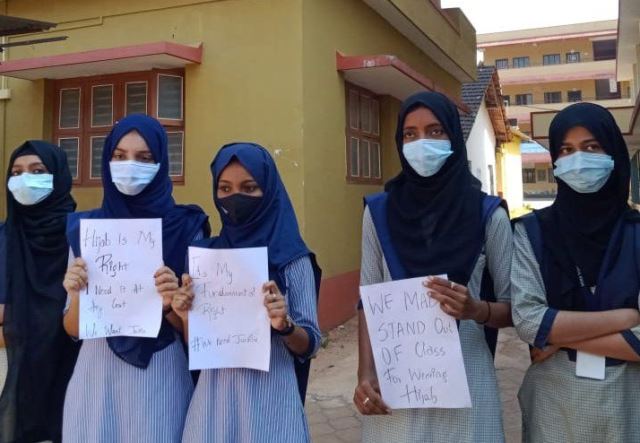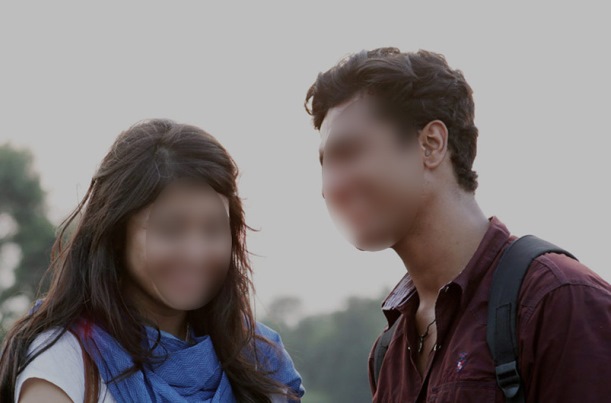First it was Love Jehad. Then, mob-lynching and beef. Then it was Romeo Squads. This was followed by blocking inter-faith marriages, harassing and humiliating adult couples.
If she is an adult Hindu woman wanting to have a consensual marriage with a Muslim or Christian man, then a thousand hurdles will be created for them. Reminds of the gory honour killings of yesteryears. Reminds more grotesquely of how Dalits are degraded and brutalised if they choose to have a relationship with an upper caste woman or man.
If this is the dominant narrative in modern India, that too in a pluralist, secular, democracy, then it is a major civilisational crisis. An entire country is being dragged into a retrograde and regressive abyss, a ghetto from which it will take great guts, resilience, enlightenment and the will to finally transcend into wisdom, love and hope.
As of now, every attempt is being made to turn this unhappy abyss in bad faith, as the principal adrenaline of our civil society, however unsuccessful. And lead protagonist in this horrible public spectacle, being celebrated routinely and ritualistically, is the BJP, the Sangh Parivar, and the states where it has its ruling regimes.
The latest thorn in their flesh are the hijabs worn by innocent and hardworking Muslim school girls in Karnataka, chasing a dream. The Karnataka government has declared that “clothes which disturb equality, integrity and public law and order should not be worn”.
Hijab has been banned in classrooms, though, clearly, it is not a violation of fundamental rights as inscribed in the secular Indian Constitution. Clearly, it is a wilful attack on law-abiding Muslim citizens, Muslim students, and, especially, Muslim girls seeking education and higher aspirations in an unequal, male dominated society.
It is a method followed in a certain predictable and clichéd pattern. In an oblique and yet brazen signal, this implies that it is an attack on Muslim youngsters attaining education, enlightenment, modernity, higher aspiration levels, and thereby finding their rightful time and space in a democratic India. It is therefore yet another signal that if you are inclined for education, then you better follow our repressive and regressive Hindutva rules, and it does not matter what were the values of the Indian freedom struggle.
No wonder, observers are certain that the hounding and prolonged imprisonment of brilliant Muslim scholars such as Umar Khalid on allegedly cooked up charges, is a sharp pointer, that, no, you have no business to reinterpret Indian history and politics, and, surely, you have no business to express dissent, or dream of a better society, and that if you do so, you will rot in jail for no rhyme or reason. This is the short, nasty and brutish message to all concerned, especially dissenters, especially youngsters, especially enlightened Muslim scholars, both men and women.
The banning of the Hijab, therefore, is part of this predictable and sick pattern. And, pray, how can wearing a headscarf ‘‘disturb equality, integrity and public law and order’’?
In that case, dupattas should be banned, and so should turbans, caps and hats. In that case, no one should wear a ‘tilak’ on his or her forehead, nor any sign or ornament depicting their religious identity. In that case, youngsters with shaven heads, mourning the death of their loved ones, should not be able to attend schools.
ALSO READ: Those Who Normalise Bulli Bai Creators, Are Breeding Rapists
And what if a Brahmin boy comes with a shaven head, what is called a ‘boddi’ in the Hindi heartland? Will he too be so unfortunately banned from attending school? Will sacred threads too be banned? And what if brothers flaunt their rakhis on the day of the festival, tied so lovingly on their wrists by their sisters?
And what about parents and guardians? Will they be allowed to participate in teacher-parents meetings wearing a burqa, a skull cap or a turban?
The example of France is too far-fetched. Barring fanatically defending the Rafael deal, the fanatics or their mentors in the Sangh Parivar are clueless about anything that is French, including its early 20th century staunch secularism, if not the narratives of the heady French revolution which inspired the world, the Paris commune run by the communists and anarchists, and an entrenched value system derived from fraternity, equality and liberty. Surely, they have no clue about its literature, art, architecture and culture, its cinema and music, and its great academic scholarship.
The French are fanatics about secularism, not communal polarisation, hate politics and xenophobia, which it hates compulsively. They only refuse to accept religious dresses in public institutions, including in schools, of all religions. They do not discriminate. The French government allowed, for instance, Charlie Hebdo, to publish those extremely controversial cartoons, for which the newspaper, its journalists and cartoonists, had to pay a heavy and tragic price.
The Karnataka government would do well to learn a few lessons from the civil society and democratic government of New Zealand, including its police force. After 50 innocent people were massacred at two mosques in Christchurch, women wore headscarves all over the country, in solidarity with their fellow Muslim citizens. It was a heartwarming signature stamped across the faces of the women of New Zealand, including its Prime Minister, Jacinda Ardern, who wore a headscarf too, and much earlier, as a leader of a secular nation where all communities are respected and are allowed to live with freedom and dignity. She was wearing a black scarf in solidarity, while meeting and hugging the mourning members of the Muslim community.
“I wanted to say: ‘We are with you, we want you to feel at home on your own streets, we love, support and respect you’,” a doctor in Auckland said. She was the inspiration behind the popular idea, reported Reuters in March 2019.
“Why am I wearing a headscarf today? Well, my primary reason was that if anybody else turns up waving a gun, I want to stand between him and anybody he might be pointing it at. And I don’t want him to be able to tell the difference, because there is no difference,” said Bell Sibly, in Christchurch.
Indeed, what became a celebrated image all over the world, a woman police officer on duty guarding the Christchurch cemetery, where the victims of the massacre were buried, held an automatic weapon, with a weapon in her hands, while wearing a headscarf.
Hijab or no hijab, it is the quest for humanity, enlightenment and pluralism which was celebrated in New Zealand by its people, its women across all communities, and its compassionate government. And that is how a civilized, pluralist and modern democracy should conduct itself. Not like what the Karnataka government is doing these days, targeting young school girls, with stars in their eyes, clutching onto their school bags, hounded and humiliated, denied their right to freedom and education. Indeed, and instead, they should celebrate them, as they do in those fake ads called ‘Beti Padhao…’
Pray, how much more fake can it get, really!

